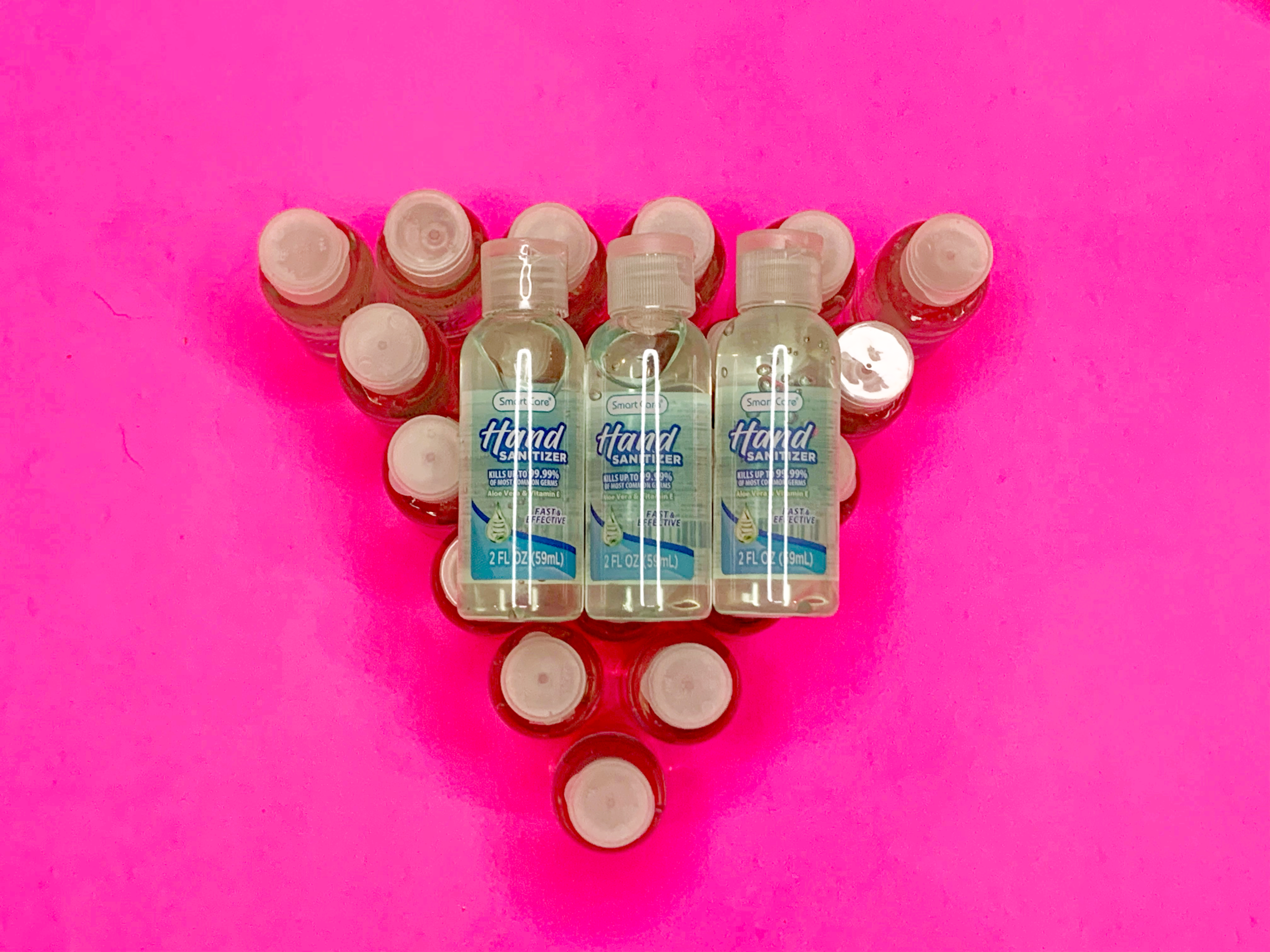
WHY IT MATTERS
*COVID-19 Special Update*
The needs addressed by We Got You are particularly pressing during the current COVID-19 pandemic.
Due to large-scale economic disruption and unemployment, the services offered by food pantries and shelters are more vital than ever. However, hygiene products—which are necessary not only for day-to-day wellbeing, but also for protection against COVID-19—are in particularly short supply at pantries and shelters. Furthermore, these products are not covered under the Supplemental Nutrition Assistance Program (SNAP), which means that some families experiencing unemployment are having an especially challenging time acquiring hygiene products.
Inadequate access to hygiene products affects families in so many ways.
Masks are an essential health product needed to prevent spreading and contracting the virus, and unfortunately, due to their cost and at times, lack of availability, this can become a dangerous impossibility. But more than that, it’s difficult for people to focus on pressing life issues such as finding a new job, when they can’t afford the basic hygiene products they need to start their days with dignity. With multiple stressors—relating to health, child-care needs, finances, among others—the pandemic is the perfect storm for our neighbors struggling to make ends meet.
In addition, families may face financial consequences for inadequate access to hygiene products. Recently in Illinois, Governor Pritzker has proposed a fine for mask non-compliance. By adding masks to our distributed products during the COVID-19 pandemic, We Got You wants to ensure our most vulnerable populations have the ability to stay safe and comply with state regulations.
In addition to families experiencing income disruption, people experiencing homelessness—who often rely on pantries and shelters for certain needs—are disproportionately affected by the pandemic.
They are at greater risk for contracting the virus due to multiple factors:
Many homeless shelters have closed or decreased capacity in order to reduce transmission risk, which has increased the number of unsheltered individuals who face greater risk for community transmission.
Those able to access homeless shelters face increased risk due to the high numbers of cases affecting shelters across the country
Increased likelihood of underlying health conditions, as compared to housed individuals, which increases the risk of hospitalization and death
Lower likelihood of access to health insurance and other health services, as compared to housed individuals

Now, more than ever, access to hygiene products and services are vital to help protect our most at-risk and vulnerable populations.
Hygiene products are in short supply at pantries and shelters in our community.
While food items are among some of the most common donations to pantries and shelters, hygiene needs are often overlooked and under-serviced—despite their importance to health and well-being. Pantries and shelters often face severe shortages of hygiene products such as shampoo, soap, deodorant, shaving cream/razors, etc.
We Got You focuses on this under-serviced need by distributing necessary hygiene products to local pantries and shelters.
Hygiene products are crucial for the health and well-being of all people.
Access to hygiene products like soap is crucial for maintaining physical health and well-being. Good hygiene practices reduce the risk of infectious diseases, and also contribute positively to a person’s dignity.
Inadequate access to hygiene products not only results in negative health consequences, but also creates additional stressors for families and individuals struggling to make ends meet.
People experiencing homelessness, in particular, often face significant challenges to self-care and personal hygiene practices.
Many people have limited access to bathing and laundry facilities where they can wash their hands, take a shower, and wash their clothes.
Even those able to access a shelter may not always have access to hygiene facilities, due to limitations of shelter resources. In some instances, people may feel uncomfortable or unsafe using public facilities for personal hygiene.
These barriers to hygiene practices are detrimental to both physical and mental health.
There are many negative health outcomes associated with limited access to hygiene facilities:
Those experiencing homelessness are particular at risk for infectious diseases, such as the recent waves of Hepatitis A outbreaks in various states across the nation.
Unhoused people are also more susceptible to wounds such as blisters, sores, and cuts, which puts them at greater risk for infection when places to wash are not available.
According to the National Institute of Health, good personal hygiene contributes not only to physical health, but can improve mental health as well. It can help those experiencing homelessness feel more confident and live with more dignity.
Furthermore, barriers to hygiene practices further perpetuates homelessness.
Limited access to hygiene facilities further stigmatizes unhoused individuals in public spaces. They are often barred from using restroom facilities in businesses, which only exacerbates barriers to adequate hygiene practices.
Hygiene challenges also limit employment opportunities, which could help an individual get back on their feet.
Kris McAlister, an advocate and formerly unhoused person describes a job interview he once had:
One of the times I was homeless, I had to walk – the bus drivers were on strike – on one of the hottest days, I’m in a suit I borrowed and I’m walking and I’m soaked with sweat, I get to my thing and they were like I think you’re at the wrong office. I was like no I’m here for – and they were no, I really think you’re at the wrong office.
Learn more about the work we do at We Got You.
More information:
https://www.realchangenews.org/2019/12/04/city-dwellers-have-obligation-equalize-sanitation-access
https://www.klcc.org/post/lack-water-hygiene-can-perpetuate-homelessness
https://www.therenewalproject.com/what-homeless-shelters-really-need/
https://www.coalitionforthehomeless.org/state-of-the-homeless-2020/
